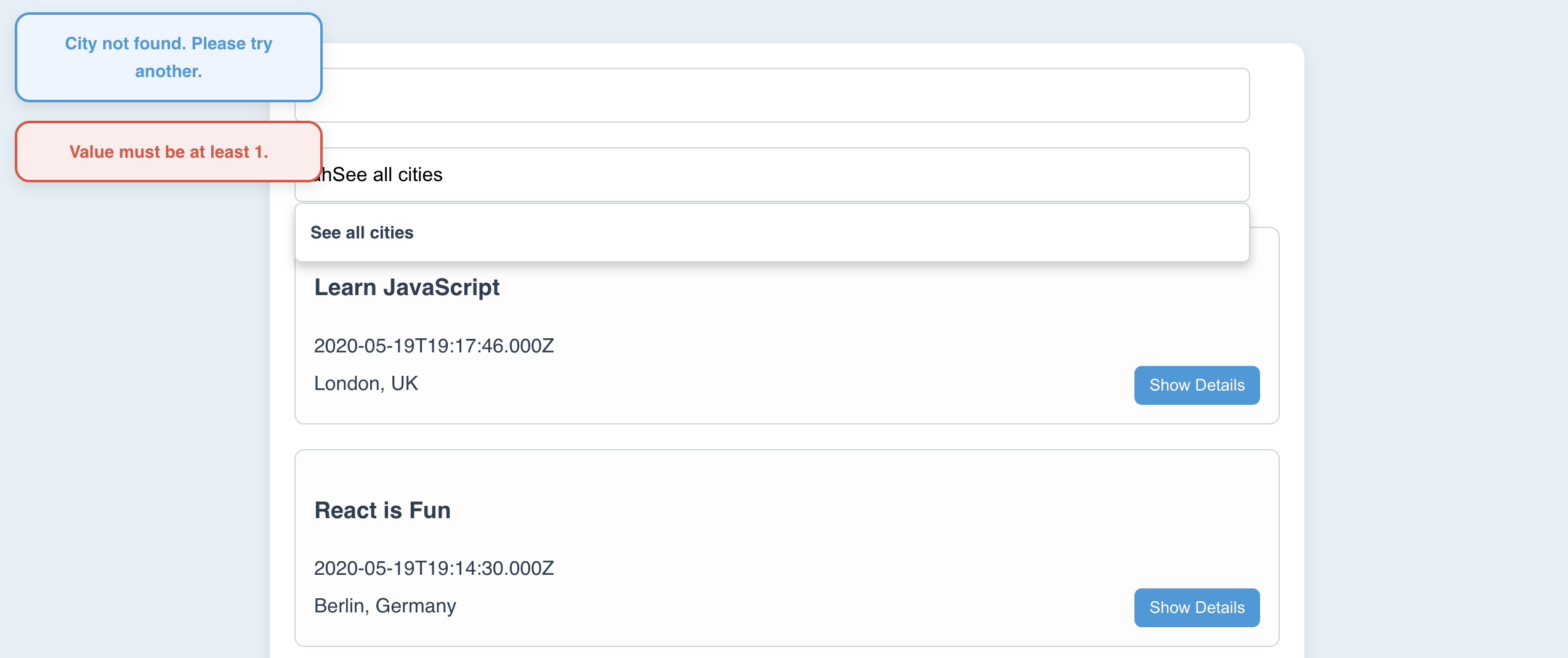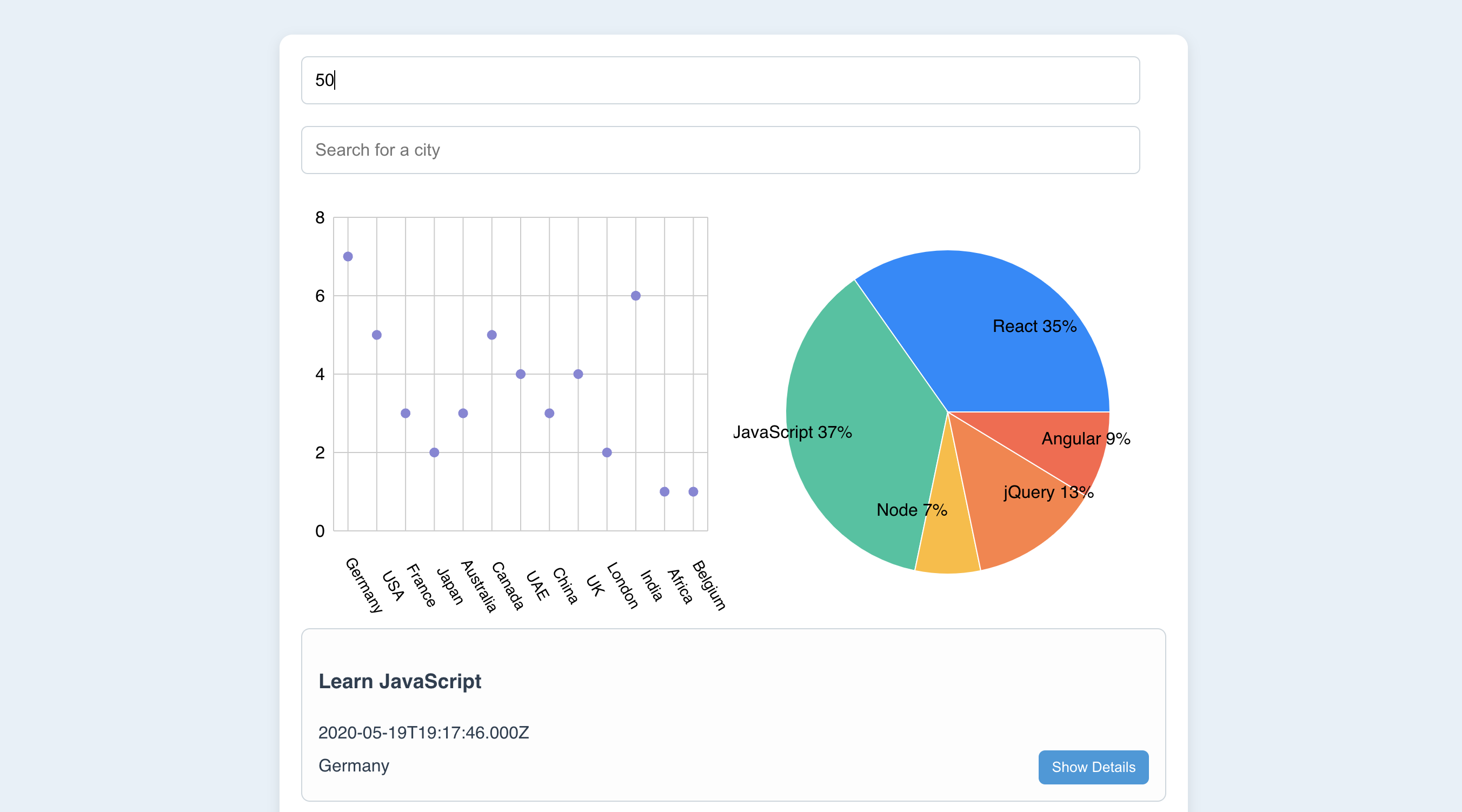Project Highlights for Meet App
Project Overview
The Meet App is a serverless progressive web application (PWA) built using React, designed to provide users with seamless access to upcoming events by leveraging the Google Calendar API. The application focuses on delivering a high-performance, cross-platform experience with offline capabilities and an intuitive user interface. The key features include filtering events by city, showing/hiding event details, specifying the number of events, offline functionality, and data visualization through charts.
Technology Stack
This project was developed using React and the Google Calendar API, supported by serverless functions on AWS Lambda. It adheres to PWA standards, ensuring offline functionality and cross-browser compatibility. Testing was a crucial aspect, with unit, integration, and end-to-end testing conducted to ensure reliability. Performance monitoring was implemented using Atatus.
Core Features
- Event Filtering by City: Allows users to filter upcoming events based on their preferred city, ensuring they see relevant information.
- Show/Hide Event Details: Provides users with the ability to toggle detailed views of events, offering flexibility in how much information they want to see.
- Specify Number of Events: Users can customize how many events are displayed, tailoring the interface to their preferences.
- Offline Functionality: As a PWA, the Meet App offers offline access to previously loaded data, ensuring usability even without an internet connection.
- Data Visualization: Includes charts to visualize event-related data, offering users insights into trends and patterns.
Development & Documentation
Throughout the development of the Meet App, I gained extensive knowledge in serverless functions, test-driven development (TDD), and progressive web applications. The project involved rigorous testing, including unit, integration, user acceptance, and end-to-end testing, to ensure a reliable and high-quality product. Documentation was thoroughly maintained, providing clear guidance for future development and collaboration.
Project Management
Utilized continuous delivery practices to ensure frequent and reliable updates to the application. Performance monitoring was integrated to identify and address issues promptly, ensuring a smooth user experience. The project was managed using a combination of agile methodologies and thorough documentation.


- Github Repository: https://github.com/TirkarParth/meet
Project Technology
- React: The web application is built using React, a popular JavaScript library for building user interfaces. React's component-based architecture allowed for the creation of modular and reusable UI elements.
- Google Calendar API: To integrate calendar functionality, the application leverages the Google Calendar API. This API provides access to events and enables seamless integration with Google Calendar data.
- AWS Lambda: The serverless architecture of the application is powered by AWS Lambda. This allows for scalable and cost-effective execution of server-side code without the need to manage traditional server infrastructure.
- Jest (Unit and Integration Testing): Jest, a JavaScript testing framework, was employed for both unit and integration testing. It ensures the reliability of individual components and their interactions within the application.
- Jest Cucumber (User Acceptance Testing): Jest Cucumber was utilized for user acceptance testing. This behavior-driven development (BDD) tool helps in defining and running acceptance tests written in a human-readable format.
- Puppeteer (End-to-End Testing): Puppeteer, a headless browser automation tool, was used for end-to-end testing. It allows for simulating user interactions and validating the application's behavior in a real-world browser environment.
- Atatus (Performance Monitoring): To ensure optimal performance, Atatus was employed for monitoring the application. This tool helps identify and address performance issues, ensuring a smooth user experience.
